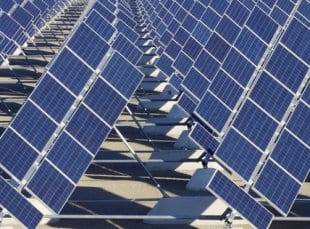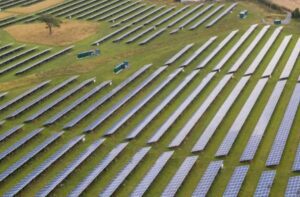Australia’s biggest investment bank, Macquarie Group, has been awarded an electricity retail licence in Australia in what may herald the start of one of the most significant challenges yet to the incumbent industry.
The deep pocketed Macquarie says it wants a retail licence to service only large users initially, but it comes just months after it revealed plans to establish a solar leasing business, and after it committed nearly $200 million to the solar leasing industry in the UK.
Macquarie is just one of a number of parties to seek electricity retail licences. Solar leasing firms are seeking them – or exemptions – to allow them to sell solar output directly to their customers; and home energy management operators, which combine solar, storage and smart technology, are looking to do the same
In the last few weeks, solar leasing firms such as Sungevity, Infinity Solar, Solar Financial Solutions and Zero Cost Solar have all applied for exemptions to allow them to retail directly to their customers, who will look to consume the entire output of the rooftop solar systems on-site. This will enable them to bypass the major retailers who control the bulk of the market.
Macquarie has assembled a 10-strong team led by Andrew McGrath to run the retail electricity business, which it says will look to provide a range of “vanilla and tailored risk management products” to large entities with high electricity use.
It says this will likely provide savings for users currently beholden to a standard fixed price, variable volume contract from a retailer.
Macquarie is already involved in the electricity market as a trader of electricity contracts, and various environmental products, and will initially source its load requirements from the Australian Market Operator.
There is no mention of its solar business in its application to the Australian Energy Regulator, but a separate Macquarie division revealed earlier this year that they are establishing a solar financing business, which can presumably be incorporated into the other activities for large energy users.
The recent move to solar financing in Australia – both commercial-scale and residential – follows on from a series of large solar financing investments in the UK, Japan and the US, and is expected to be a fore-runner of interest from other major banks in Australia which could considerably lower the cost of finance, and financial barriers, for rooftop solar in Australia.
Macquarie Group has already committed up to $197 million to UK public-housing contractor, Herbert Forrest, to fund zero upfront cost solar-power installations across Britain. The program is targeted at low-income private homeowners and social housing tenants.
Overnight, Forrest and Macquarie Lending announced they had also agreed to fund and supply photovoltaic (PV) systems for commercial buildings across the UK.
The two organisations said customers signing up for the free installations can enjoy greater control over their electricity pricing for the next 20 years. Forrest will be able to install the technology on any public or private sector buildings which suit the purpose including buildings which have pitched or flat roofs.
Macquarie Lending’s investment will be repaid through a combination of Power Purchase Agreements (PPAs) and the Feed in Tariff (FIT), the government scheme to reward property owners who produce their own electricity.
Funding is available not only for conventional roof mounted PV installations but also ground mounted solar systems and all installations are managed under a 20-year fully funded and insurance backed Operation and Maintenance agreement.
In Japan, Macquarie Capital recently formed a joint venture with Maeda Corporation to invest in infrastructure and renewable energy with an initial focus on large-scale solar projects, capitalising on incentives recently introduced by the Japanese government to encourage the development of renewable energy and reduce dependence on nuclear in the wake of the 2011 Fukushima disaster.
The Macquarie-Maeda alliance is expected to be up and running by the end of 2013 and have 300MW of generation capacity in the works by the end of 2016, with combined projects worth ¥100 billion (US$1.02 billion).
(RenewEconomy sought further comment from Macquarie, but was informed there was a media blackout ahead of the May 2 announcement of its latest quarterly results).







